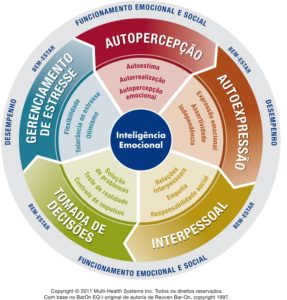
How should lawyers respond to their clients’ complaint that they lack empathy? Is it empathy such a necessary skill for those who deal everyday with laws and difficult cases? We will look to a specific professional class in order to understand how emotional intelligence might be a crucial factor to job success.
To see with the eyes of another, to hear with the ears of another, to feel with the heart of another. For the time being, this seems to me an admissible definition of what we call social feeling.” Alfred Adler
How should lawyers respond to their clients’ complaint that they lack empathy? Many clients surveyed by researchers report they feel that their lawyers do not understand them and do not care about their feelings. Lawyers who learn more about, practice, and show empathy towards their clients take substantial steps to address this longstanding complaint. Empathy involves recognizing, understanding, and appreciating how others feel, and operates as an important facet of the leading models of emotional intelligence.
The message from clients shouts loud and clear that their attorneys’ one dimensional approach of focusing predominantly on facts needs to change. It can change. Professionalism will not suffer. Instead, when lawyers become more person-centered, and not exclusively problem-centered, the attorney-client relationship can blossom and improve. Clients can experience higher satisfaction. Cases can get strengthened. The image of the profession can improve.
Thirty years ago a legal commentator stated
Once a lawyer recognizes that there are emotional components to a particular client’s problems, [the lawyer] can more fully understand the needs of the client and provide services accordingly.”
In the context of empathy skills and “effective lawyering”, that is so because “The client’s feelings are important because virtually every legal case has significant emotional components for the client. These emotional components are tied to the fact situation, to the client’s relationship with the lawyer and the client’s encounter with the legal system. The lawyer who is able to listen with empathy to the client’s problems can strengthen the case, increase the client’s satisfaction and improve the business aspects of the lawyer’s practice.”
This post will discuss lawyers and empathy through the lens of one model that measures emotional intelligence, the EQ-i 2.0, published by Multi-Health Systems, Inc. (www.mhs.com). That focus provides a glimpse into the many opportunities which await those lawyers who care about caring. A new day with improved client relations for those attorneys who really care about caring and take the next step can dawn. These lawyers go beyond thinking about empathy. They learn about active listening and how to respond empathically with their clients. Empathic lawyers respond not just to the content of their clients’ messages, but also to the feelings behind those messages. Finally, in borrowing from some techniques of the microskills approach from counseling psychology, and adapting those to legal services, Psycholawlogy offers its readers a first lesson in empathy – “Empathy 101”.
Empathy – As Defined and Measured by the EQ-i 2.0
The ability to perceive, understand, and appreciate what, how, and why people feel the way they do constitutes the core of empathic behaviour. As measured by the EQ-i 2.0 assessment, interpersonal warmth, involvement, and attachment psychometrically correlate with empathy. The EQ-i 2.0 Handbook states “At the core of empathic behavior is being to perceive and appreciate what, how, and why people feel the way they do – being able to emotionally “read” other people – while demonstrating an interest in and concern for others.”

Good Lawyering Resembles Good Therapy: “Empathy 101”
Professor Barkai observed some thirty years ago that
Lawyers, like other good counselors, need to respond to both the content of their client’s statements and to the feelings behind those statements.”
Although lawyers charge their clients for services rendered, and those services relate to “legal services”, and not psychotherapy, “good lawyering resembles good therapy to the extent that both require rapport between the professional and the client.” Carl Rogers emphasized empathy. Simply put, empathy in the legal services context means that attorney will listen carefully, enter the world of the client, and the attorney communicates that she understands the client’s world as the client sees and experiences it. But, the attorney does not become the client—the attorney understands, but also remain separate from the client.
Empathic communication occurs within the Basic Listening Sequence [BLS]. Whenever working with a client on any topic, the goals of the basic listening sequence (BLS) are:
- Learn the key facts and thoughts around the situation. These are obtained through “what” questions, encouragers, and paraphrases.
- Appreciate the client’s central emotions and feelings. The attorney can elicit emotions through questions (such as “Could you share your feelings about that issue?” “How does that feel?”), reflection of feeling, and encouragers that focus on emotional words.
- Generate an overall summary of the issue. At the close of a section of the interview, the attorney may want to summarize the client’s main facts and feelings. Sometimes it is useful to start a session with a summary.
How does the attorney achieve those goals and empathic understanding?
Observation of client reactions, body posture, and voice should always occur. The attorney uses the skills of questioning, encouraging, paraphrasing, reflection of feeling, and summarizing. After establishing the initial rapport in the relationship first, the exchange with the client begins with an open question. Next, the attorney may use closed-ended questions for clarification. The BLS microskills need not be used in a specific order. The attorney serves the client best by flexibly adapting the skills to meet client needs.
The microskills approach also includes specific dimensions which may enhance the quality of the empathic experience shared between client and lawyer. Lawyers can consider and then try one or more these, and in varying degrees, and as appropriate to client and depending on circumstances:
- Positive regard– Selectively attending to positive aspects and responding to the client as a worthy human being.
You don’t have to agree, just regard humanity as positive. - Respect and Warmth–Demonstrate by open posture, smiling, and vocal qualities. Be congruent with your body language. Congruence shows respect and warmth. Videotape review is a great way to assess progress.
- Concreteness– Seek specific feelings, thoughts, descriptions, and examples of action. Vague generalities complicate relationships and make client circumstances ambiguous. A most useful open question to use is “Could you give me an example of . . .?”
- Immediacy – What is going on now? Get to what the client is thinking and feeling at the very moment.
- Authenticity and Congruence– The attorney should be real with the client and not show discrepancies nor give mixed messages. Showing flexibility in responding to your client shows your authenticity.
Psycholawlogy offers this “lesson” to illustrate the potential of the power of empathic communication and what steps attorneys can take to increase their empathic communication. This post does not intend to and does not teach lawyers how to practice psychotherapy or counseling.

New Dawn
Thirty years ago, a wise professor at the University of Hawaii and a collaborating psychologist co-author conceived an idea that lawyers could derive numerous benefits from increasing empathic skills. The torch lit by their article still burns. The image above shows a beautiful new dawn. The “new day” in improved communication and satisfaction with the attorney-client relationship can dawn.
In the attorney-client relationship, empathy:
- is experiencing the world of the client, but the attorney remains separate;
- is a central factor in establishing and maintaining an effective, working attorney-client relationship, which is similar to the “working alliance” between therapist and client;
- forms part of that 30% of common factors that make for successful interviewing, counseling, and psychotherapy and it should be no less important for attorneys and their clients in the attorney-client relationship
Empathy skills, according to Professor Barkai and his co-author psychologist Virginia Fine, “can improve nearly all aspects of lawyering by facilitating rapport, increasing factual disclosure and improving client satisfaction.” Specific benefits of empathic communication may include:
- empathic listening builds rapport, which is crucial for professional relationships, between attorney and client;
- the greater the rapport between the lawyer and the client, the more likely that the client will provide the lawyer all known facts;
- efficiency enhancements in that empathic communication saves time because the client has greater trust in becomes more willing to provide information;
- improved client counseling through increased rapport maximizes the helping relationship because improved communication allows the attorney to direct attention to and craft solutions to address more dimensions of the client’s social, economic, and personal concerns;
- empathic listening skills, which do not come naturally to lawyers, can, according to Psycholawlogy, be learned and increased by coaching and training designed to increase emotional intelligence;
- finally, when lawyers improve their empathic communication skills, the general image of the legal profession improves.

Original article “Emotional Intelligence, Lawyers, and Empathy–Using The Power of Listening With Care to Build Better Professional Relationships and Satisfy Clients” by Dan Defoe (in Psycholawlogy, 2012)




